China’s Partnership With Russia Seen as Serious Problem for the U.S.
Americans are acutely concerned about the partnership between China and Russia. Around nine-in-ten U.S. adults say it’s at least a somewhat serious problem for the United States,
Pew Research Center
As war rages in Ukraine – one which China thus far has refused to condemn – Americans are acutely concerned about the partnership between China and Russia. Around nine-in-ten U.S. adults say it’s at least a somewhat serious problem for the United States, and a 62% majority say it’s a very serious problem – more than say the same about any of the other six problems asked about, including China’s involvement in politics in the U.S., its policies on human rights and tensions between China and Taiwan, among others.
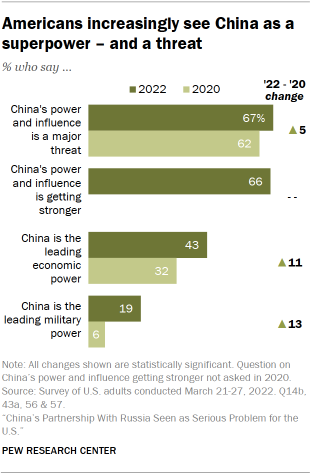
Alongside the specific concern about the China-Russia relationship is a sense that China is a world superpower. About two-thirds (66%) of U.S. adults say China’s influence on the world stage has grown stronger in recent years. More Americans now also describe China as the world’s leading economic power. Around four-in-ten (43%) call China the world’s top economy – as many as say the same of the U.S. This marks a significant departure since 2020, when 32% of Americans said China was the world’s top economy and 52% named the U.S. This double-digit increase returns the share of Americans who consider China the world’s top economy to levels last seen in 2014.
And while Americans still unambiguously consider the U.S. to be the world’s leading military power – 70% say this, compared with 19% who name China and 9% who name Russia – the share naming China has more than doubled since 2020.
China’s power and influence is also seen as a growing threat to the U.S. Today, two-thirds describe China as a major threat – up 5 percentage points since 2020 and 23 points since the question was first asked in 2013. Notably, despite the conflict in Ukraine, this is similar to the share who describe Russia’s power and influence as a major threat (64%) to the U.S.
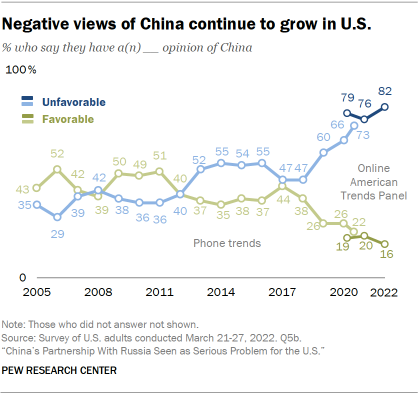
Negative views of China have also increased slightly over the past year. Around eight-in-ten (82%) have unfavorable opinions of China, including 40% who have very unfavorable views of the country. This is a 6-point increase in negative views from 2021 and a new high since the Center began asking this question on its American Trends Panel in 2020. The current reading is also a record reading of unfavorable opinions since 2005, although the mode shift from phone surveys to the online panel makes it difficult to directly compare today’s numbers with data from before 2020.
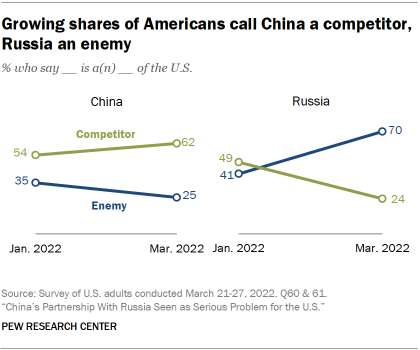
But, even while negative views of China have grown, Americans increasingly see China as a competitor and not as an enemy. Currently, 62% identify China as a competitor and 25% an enemy, with 10% seeing China as a partner. In January, only 54% chose competitor while 35% said enemy, almost exactly the same shares as the year prior. In the same two months, after Russia’s invasion of Ukraine, the opposite shift occurred in the shares of Americans who call Russia an enemy or competitor.
As has consistently been the case in recent years, Republicans and independents who lean toward the Republican Party tend to have more negative views of China than Democrats and independents who lean toward the Democratic Party – 89% vs. 79%, respectively. Republicans are also much more likely to call China an enemy than Democrats and to describe China’s power and influence as a major threat to the U.S.
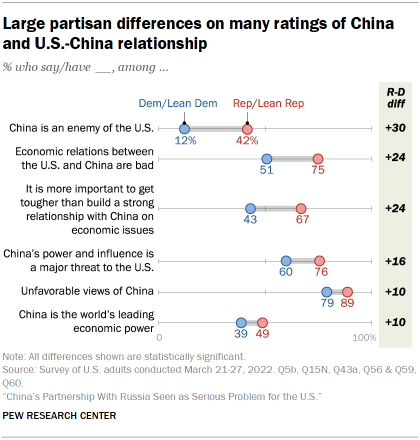
Differences are particularly large when it comes to economic issues: Republicans are more likely than Democrats to say the China-U.S. economic relationship is bad and to prioritize getting tough on China on economic issues. Views of the world’s leading economic power also differ by partisanship, with 49% of Republicans naming China as the top economic power and 39% of Democrats saying the same. But the share of Republicans naming China as the top economic power has almost doubled since 2020, while Democratic views on China’s economic dominance have remained largely unchanged.
These are among the key findings of a new survey conducted by Pew Research Center on the Center’s nationally representative American Trends Panel among 3,581 adults from March 21 to 27, 2022. The survey also finds major differences in views of China between older and younger Americans. Older Americans are more likely to have negative views of China, to say the China-U.S. relationship is bad and to describe China as an enemy. Older Americans are also more likely than younger adults to see nearly every issue in the bilateral relationship as a serious problem for the U.S. The age gap is most acute when it comes to tensions between China and Taiwan. While 52% of Americans ages 65 and older consider tensions between China and Taiwan a very serious problem, 26% of those ages 18 to 29 say the same. A 25-point gap is also present when Americans think about the partnership between China and Russia.


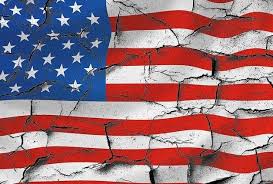
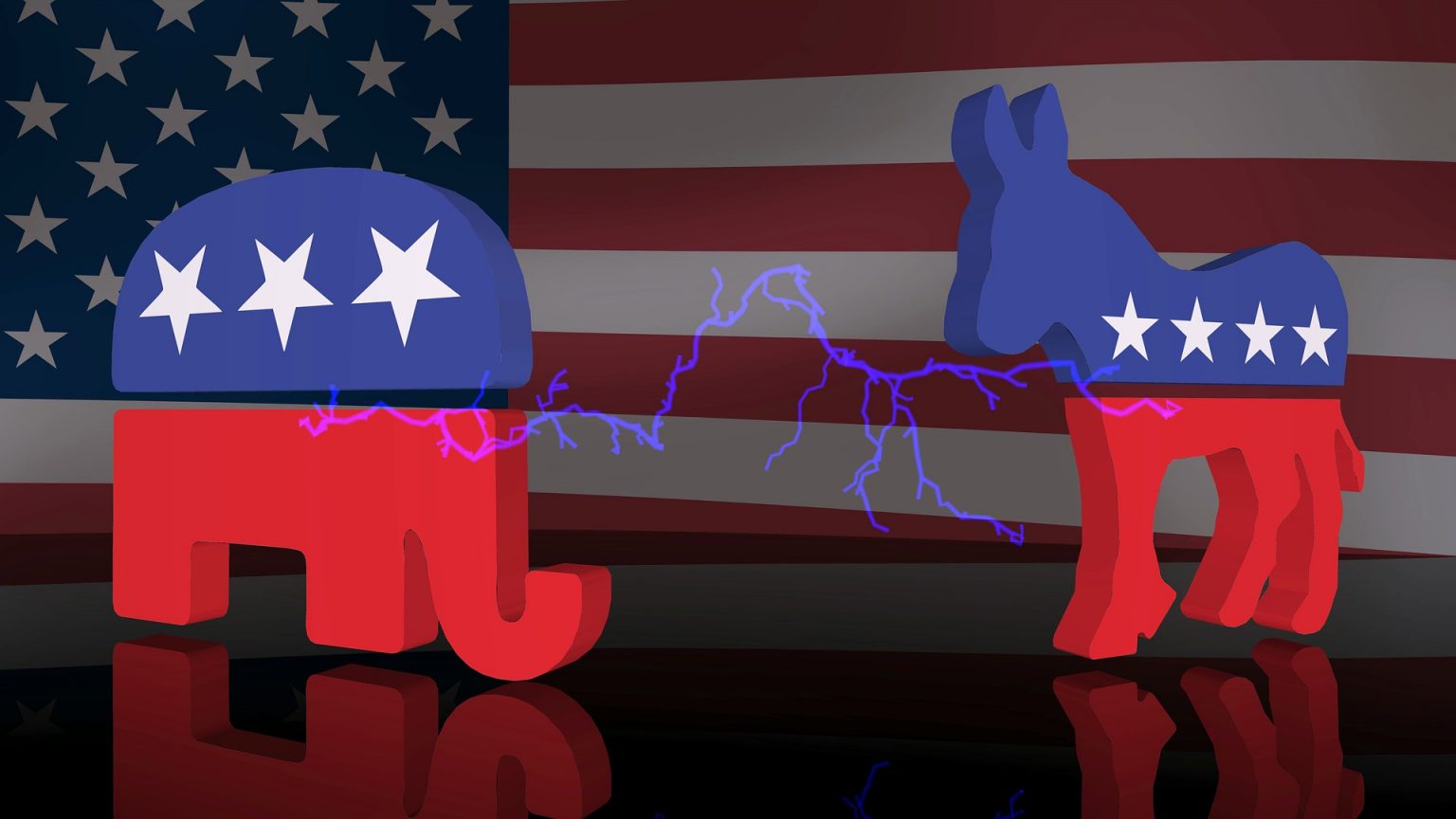
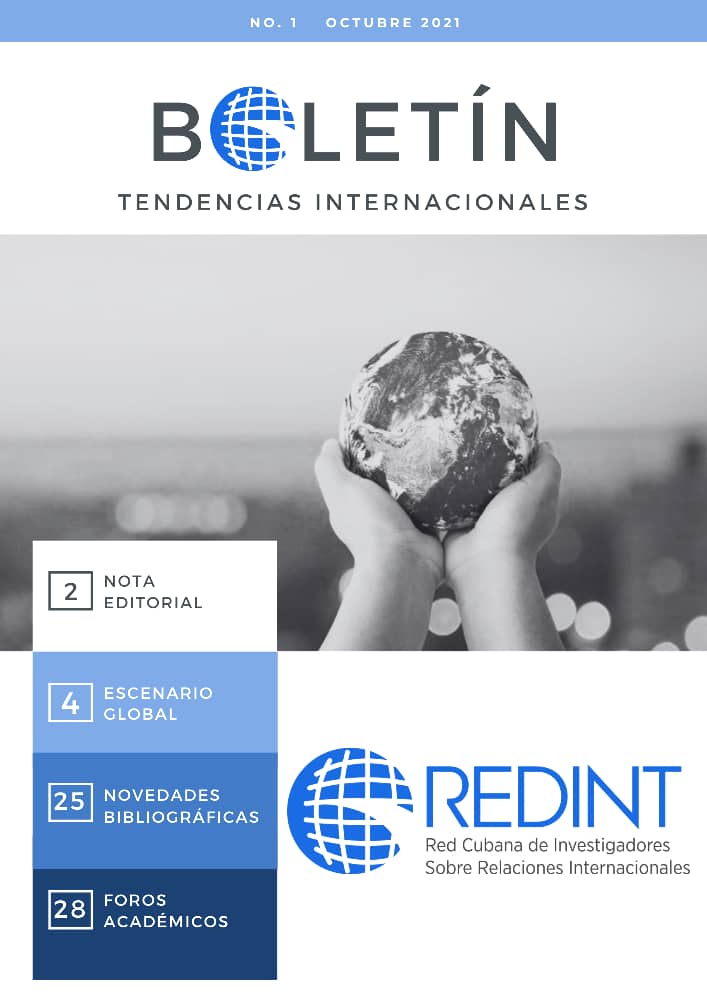
Déjanos tu comentario